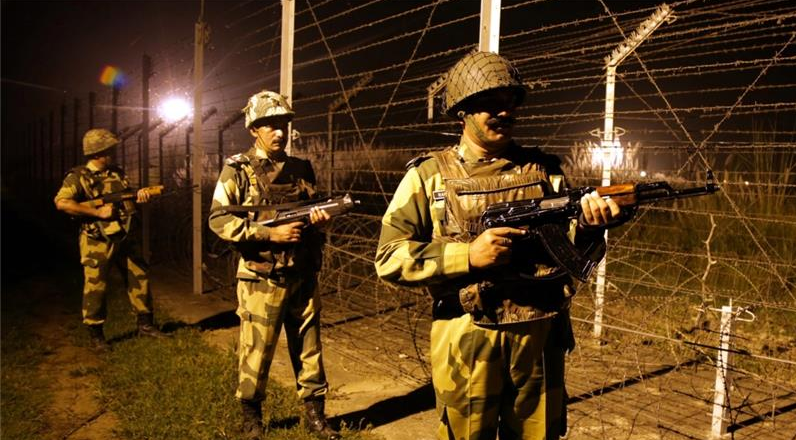
NEW DELHI – Indian police accused a staff member of the Pakistan embassy in New Delhi on Thursday of engaging in spying activities and ordered his expulsion, deepening the ongoing tension between the nuclear-armed neighbors.
Police said that they busted a spy racket that was run by Mehmood Akhtar, a Pakistani national who worked in the visa section of the Pakistan High Commission in New Delhi. Akhtar, police said, was detained after he was caught on Wednesday receiving military documents from two Indian citizens.
Police said in a statement that its team has seized “vital information, documents related to deployment of army and paramilitary forces” in the border districts that has “serious implications on national security.”
India declared Akhtar a “persona non grata for espionage activities,” tweeted Vikas Swarup, spokesman for the Foreign Ministry.
The incident comes amid growing hostility between the two nations after alleged Pakistani militants attacked an army base near the border last month, prompting India to retaliate.
Since their independence from Britain more than 65 years ago, the two countries have fought three wars against each other. Relations warmed slightly after Prime Minister Narendra Modi came to power and met his counterpart Nawaz Sharif in a surprise visit last year. But with the recent border clashes, ties have soured.
India’s movie industry banned Pakistani artists from performing in its films, the cricket board barred Pakistani players from participating in a league, and a high profile summit of South Asian leaders in Pakistan was canceled. The two countries exchanged heavy mortar fire along the border this week.
Police arrested the two Indian citizens and said they were on the lookout for a few more who were part of the spy ring.
“The spy module was active for 18 months, and on an average they used to meet once a month,” Ravindra Yadav, joint commissioner in Delhi police told reporters at a press conference. “The meetings usually took place in tourist spots, either in the old city or near the zoo.”
On Wednesday, plainclothes policemen were deployed around the zoo ahead of a scheduled meeting and detained Akhtar and two other men.
“At first Akhtar said he is an Indian citizen and produced a biometric identity card with a local address,” Yadav said. “After sustained interrogation, we found that it was a forged card and that he began working in the Pakistan High Commission in India two-and-a-half years ago.”
Akhtar was released from detention after he claimed his diplomatic immunity.
Yadav said that his work in the visa section of the embassy in New Delhi gave him access to “ordinary Indians,” helping him “identify potential recruits and induce those who were poor to help Pakistan.”
A statement by the Pakistan High Commission here “strongly rejected and denied” the accusations and protested the “detention and manhandling” of Akhtar. It asked the Indian government “to ensure that such harassment should not happen in future.”
The Indian action is trying to “shrink the diplomatic space for the working of the Pakistan High Commission,” the statement added.
Featured Image: EPA
(c) 2016, The Washington Post · Rama Lakshmi

